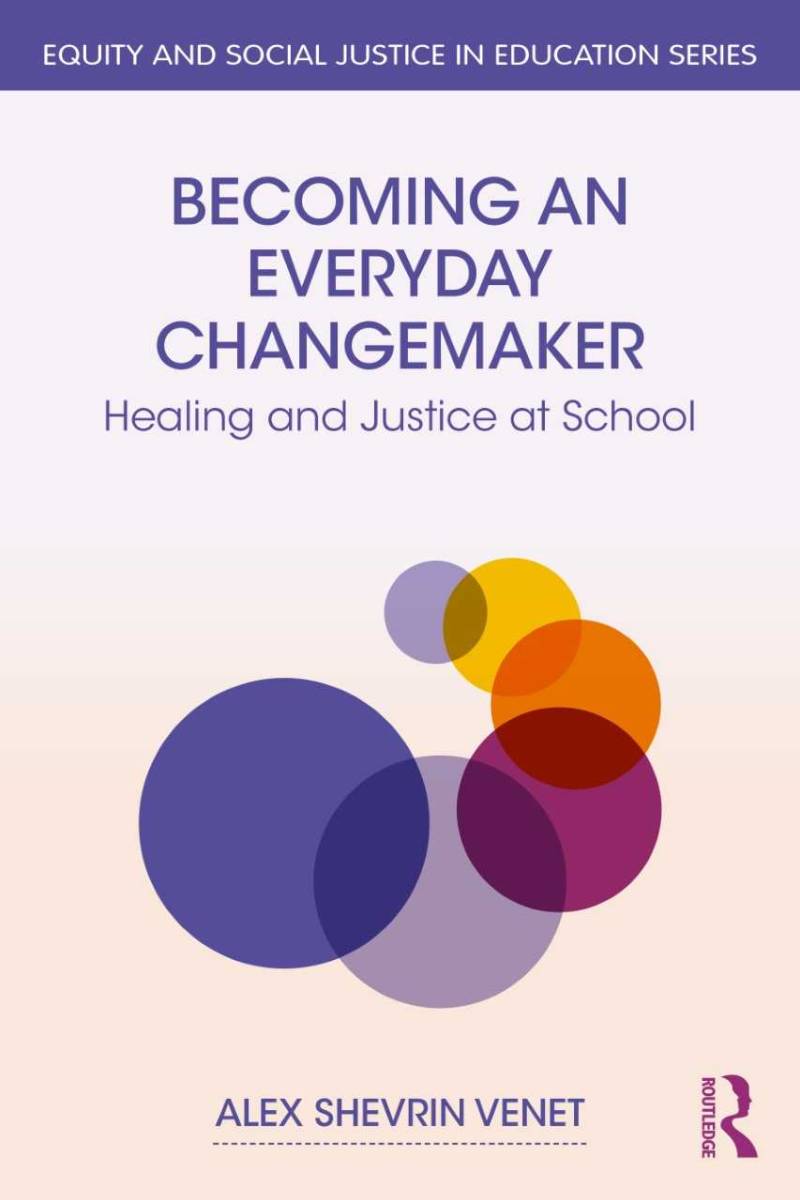From Becoming an Everyday Changemaker by Alex Shevrin Venet. © 2024 Routledge/Taylor & Francis. Reproduced with permission.
Change is unsettling. I mean this in both positive and negative ways. Change unsettles the status quo and breaks up our habits. Change often requires that we try new things and new ways of being together. This can be an exciting time in the life of a group or an individual, but it can also be terrifying. My mentor Katie used to say, “transitions are hard” whenever we were on the precipice of change in our school. While seemingly obvious, the statement re-grounded us. Whether we were talking about an upcoming school break or supporting a coworker going through a divorce, “transitions are hard” was a simple reminder of the unsettling nature of change. I remember Katie saying this to me as I prepared to move apartments one year. I was excited about my new apartment and new roommate, but until she reminded me that transitions are hard, I had been trying to avoid confronting how stressed out I was about the move. Even if we want, need and dream of change, it still challenges us.
 For those impacted by trauma, change can be not merely unsettling but an existential threat. Psychologists describe trauma as existing along a continuum of stress. Stress happens whenever the conditions around us disrupt our typical state or way of being. Some types of stress are positive and help us grow, such as the stress of learning something new and feeling like our brains are “stretching.” This type of stress is considered “predictable.” When we engage with positive stress regularly, it can help to build emotional resilience. Compare this to how your muscles might feel sore after a session at the gym, but you’re getting stronger each time. Stress becomes traumatic when it overwhelms the resources we use to cope with it. This is more likely when stress is unpredictable, intense or prolonged. It’s less like a post-workout ache and more like an injury.
For those impacted by trauma, change can be not merely unsettling but an existential threat. Psychologists describe trauma as existing along a continuum of stress. Stress happens whenever the conditions around us disrupt our typical state or way of being. Some types of stress are positive and help us grow, such as the stress of learning something new and feeling like our brains are “stretching.” This type of stress is considered “predictable.” When we engage with positive stress regularly, it can help to build emotional resilience. Compare this to how your muscles might feel sore after a session at the gym, but you’re getting stronger each time. Stress becomes traumatic when it overwhelms the resources we use to cope with it. This is more likely when stress is unpredictable, intense or prolonged. It’s less like a post-workout ache and more like an injury.
Sometimes, the stress of change falls on the “positive” end of the stress spectrum. For example, at one school where I worked, the end of the academic quarter was a time of change. Student and teacher schedules shifted for the new quarter, bringing fresh beginnings. I often began co-teaching with a new colleague at the start of a new quarter. I love co-teaching, so this was usually exciting. With new classes also came a rush of unit planning, lesson design and relationship-building with fresh groups of students. The quarter change was a stressful time, but the stress was predictable and moderate, making it positive stress. I learned and grew from the stress of the quarter change, even if in the midst of it I felt unsettled.
Change can also fall toward the traumatic side of the stress spectrum. When a fellow teacher resigned from our school mid-year, the stress was anything but positive. My colleagues and I lost some of our planning time to cover his classes. Some students felt a sense of abandonment, and supporting them emotionally only added to an already-tense environment in our school community. Plus, I was on the hiring committee, and so my to-do list grew longer as I unexpectedly dealt with the logistics of a candidate search. The stress was prolonged and unpredictable and, in some moments, intense. While I didn’t develop a lasting trauma response from this change, my mental health suffered in the short term.




